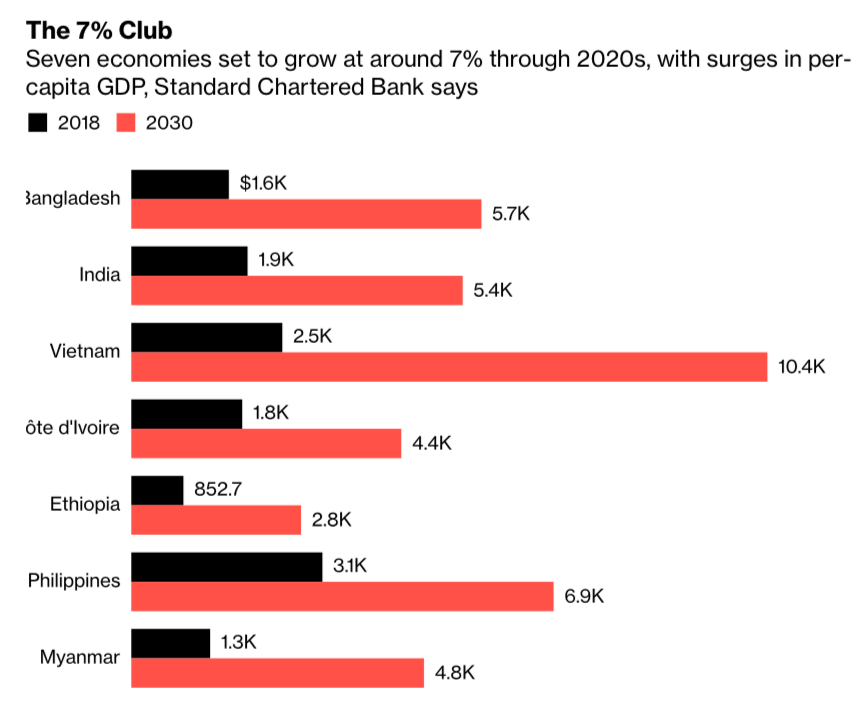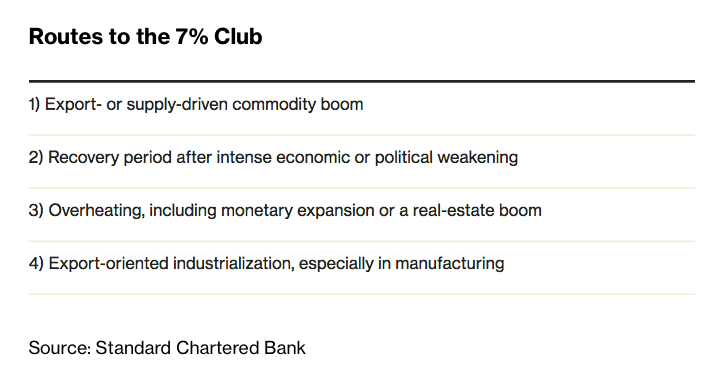The 2020s are set to be the Asian decade, with the continent dominating an exclusive list of economies expected to sustain growth rates of around 7%, as reported by Bloomberg.
India, Bangladesh, Vietnam, Myanmar and the Philippines should all meet that benchmark, according to a research note Sunday from Madhur Jha, Standard Chartered’s India-based head of thematic research, and Global Chief Economist David Mann.
Ethiopia and Côte d’Ivoire are also likely to reach the 7% growth pace, which typically means a doubling of gross domestic product every 10 years. That’ll be a boon to per-capita incomes, with Vietnam’s soaring to $10,400 in 2030 from about $2,500 last year, they estimate.

The South Asian members of the group should be GDP standouts as they’ll together account for about one-fifth of the world’s population by 2030, Standard Chartered reckons. The demographic dividend will be a boon for India, while Bangladesh’s investments in health and education should juice productivity.
The Asian dominance of the list is a change from 2010, when the bank first started tracking the economies it expected to grow by around 7%. Back then, there were 10 members evenly split between Asia and Africa: China, India, Indonesia, Bangladesh, Vietnam, Nigeria, Ethiopia, Tanzania, Uganda, and Mozambique.
While all the countries listed are predicted to enjoy surges in per-capita GDP, the research notes that it does not necessarily mean that people’s lives will become much better in spheres such as health and education, and have better access to goods and services.

However, the growth can result in higher incomes and “reduce socio-political instability and make it easier to introduce structural reforms, creating a virtuous cycle,” they say in the report.
Meanwhile, China, the champion of the bank’s previous similar rankings, is not expected to meet the seven-percent benchmark, growing instead at a 5.5-percent pace.
The world’s second largest economy had not left the list for four decades, but is set to lose its place in the club due to an economic slowdown and a progression toward higher per-capita incomes.
Research by the ASEAN+3 Macroeconomic Research Office (AMRO) issued earlier this month said that China’s growth is set to further cool down next year, and stand at 6.2 percent, as quoted by RT.com.


















